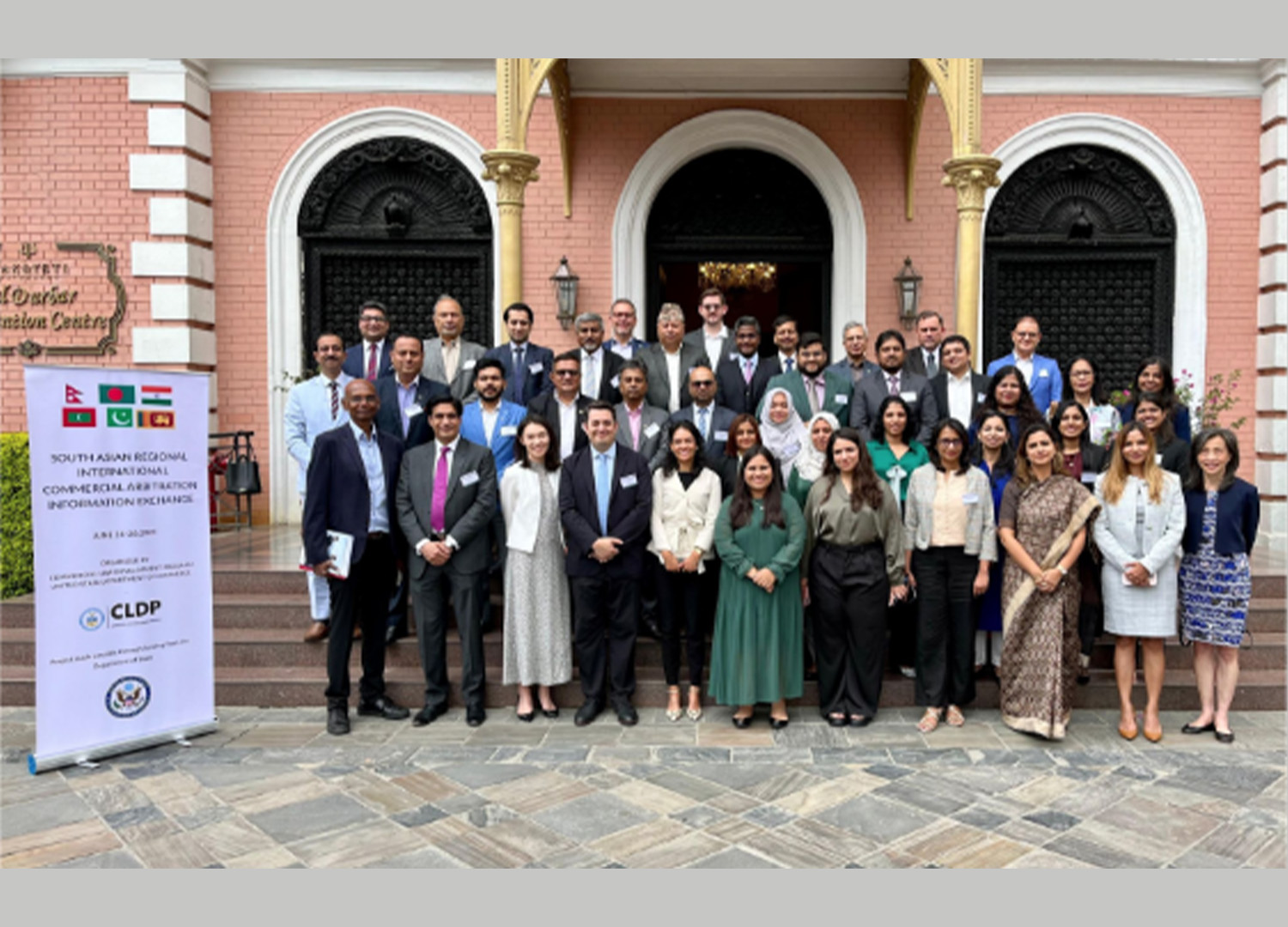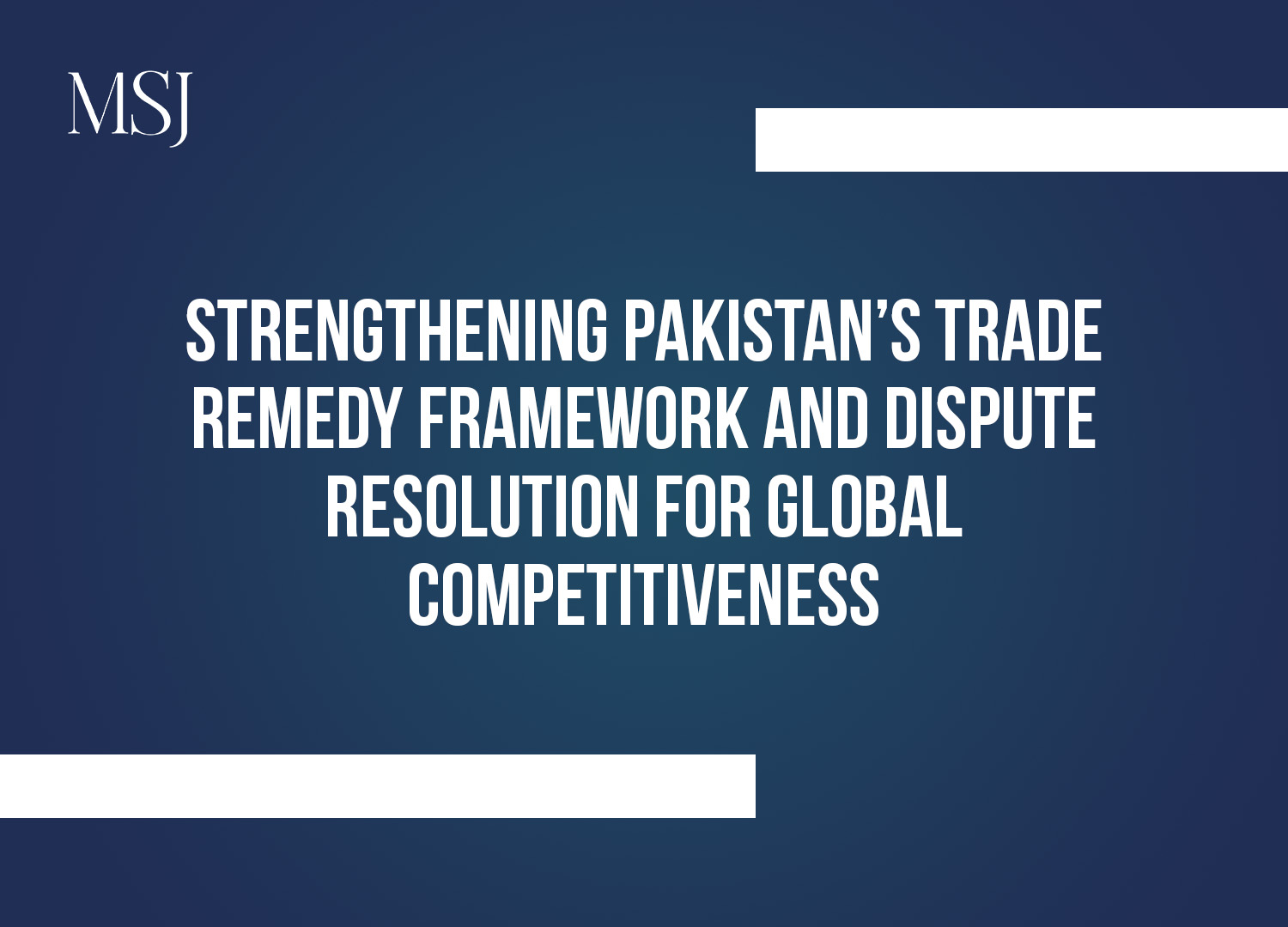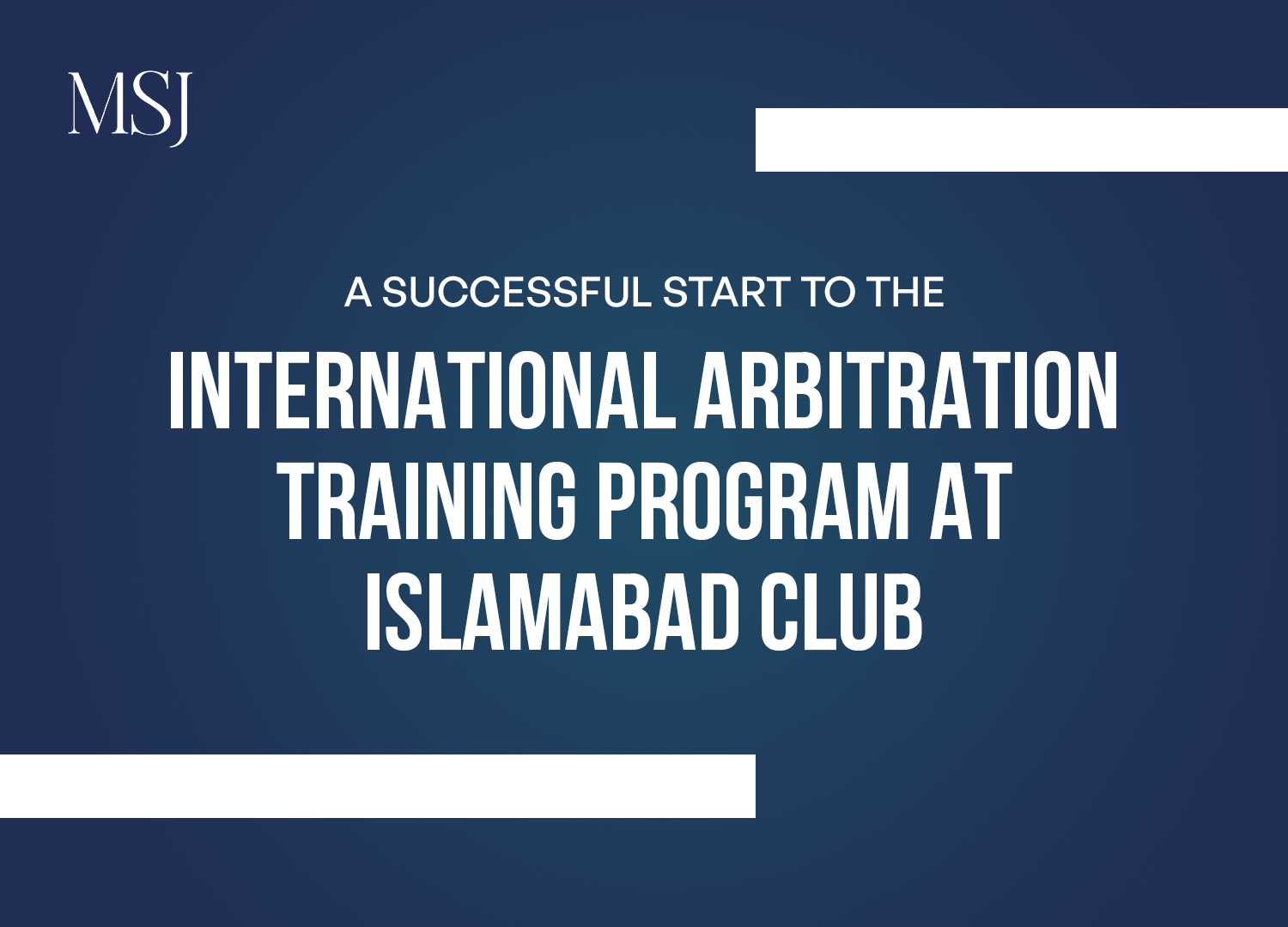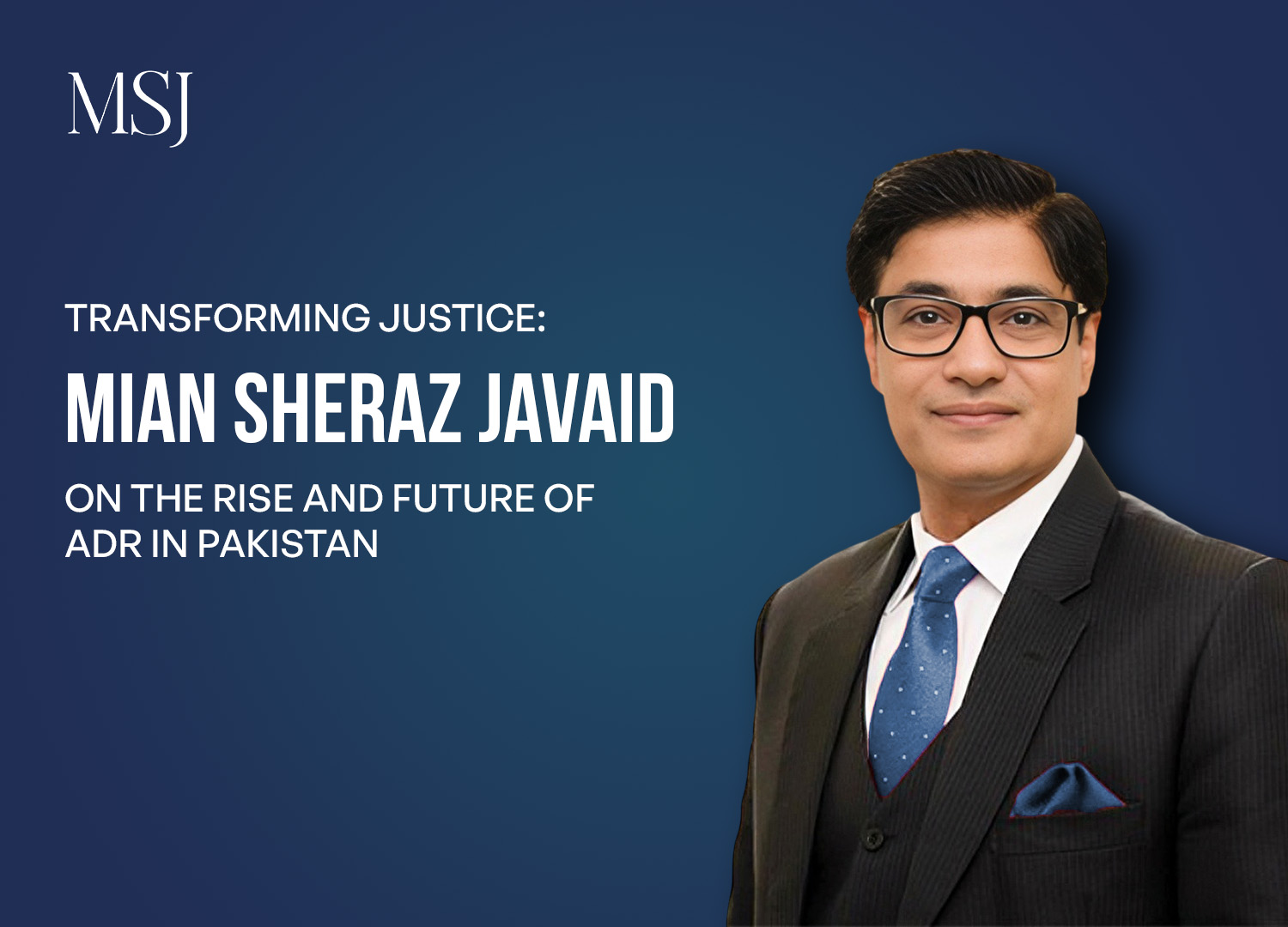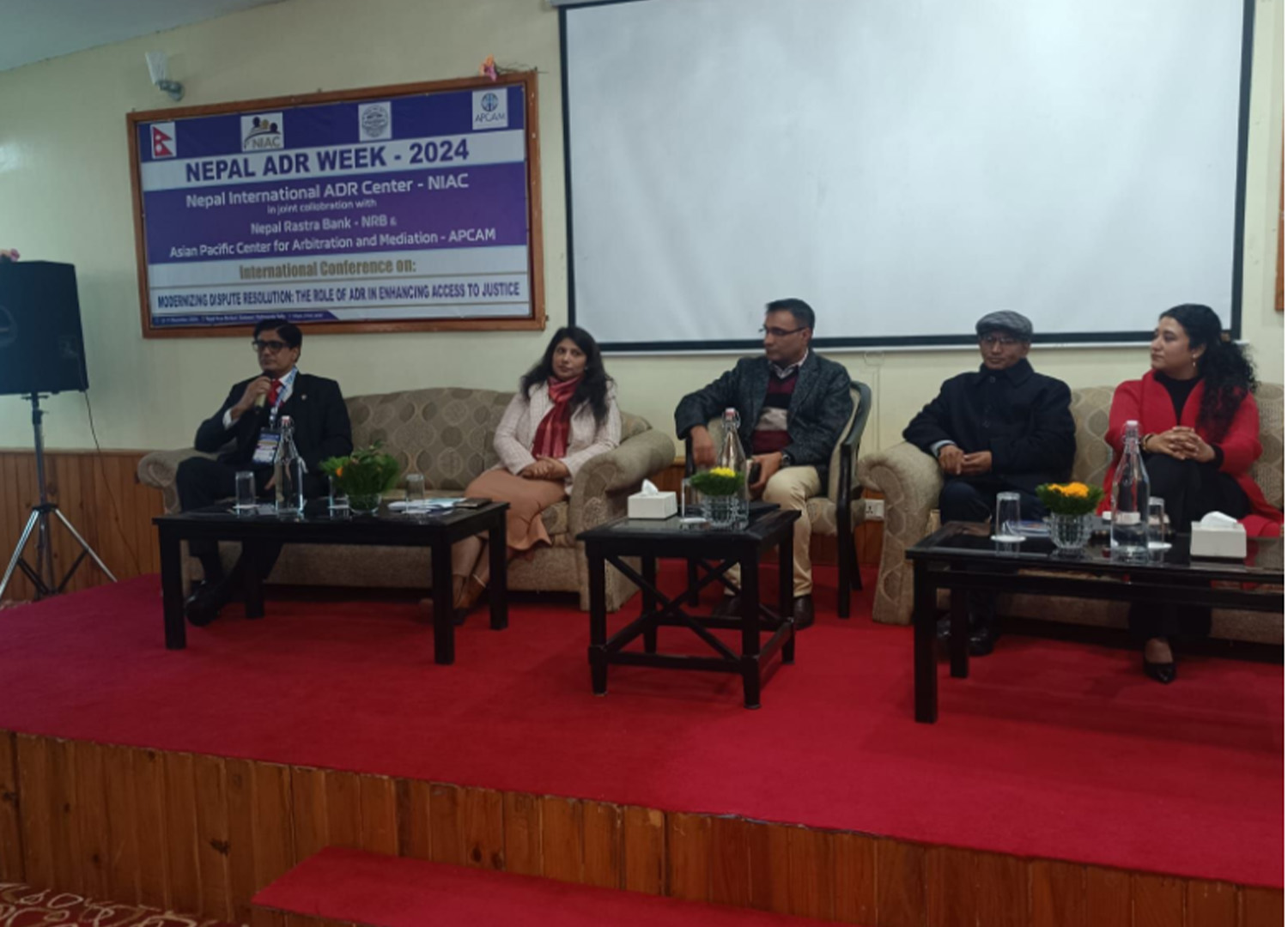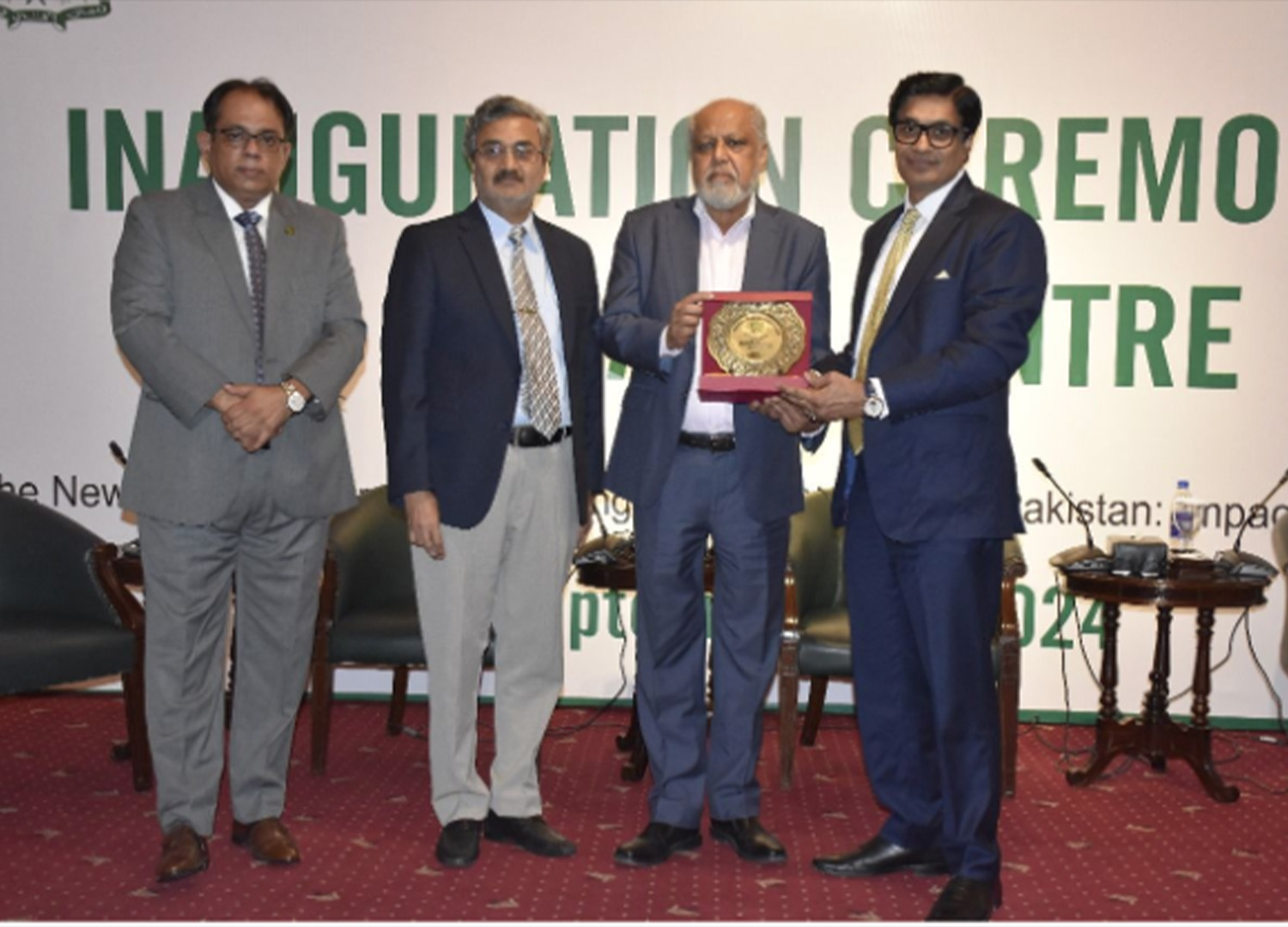Mian Sheraz Javaid Leads First Session of Ciarb's International Arbitration Course in Karachi
The course is aimed at delivering theoretical knowledge along with practical insights, where all the important issues regarding arbitration practice have been dealt with in depth. It gave valuable insight into matters such as arbitration agreements, appointment of the tribunal, pleadings, evidence, hearings, and issuance of arbitral awards. This training is helping Pakistan's legal community become better equipped to manage high-stakes international disputes with confidence through a complete framework for understanding arbitration.
Laying the Groundwork for Comprehensive Arbitration Knowledge
The session focused on laying a strong foundation for participants, ensuring they understood each critical stage in the arbitration process. Mian Sheraz Javaid’s clear and structured approach helped participants grasp both the theoretical and practical aspects of international arbitration.
“We wanted to provide not just a theoretical overview but also practical insights into how arbitration functions in real-world scenarios,” Sheraz explained after the session. “The aim is for participants to feel confident in managing complex international disputes, which can involve multiple jurisdictions, legal systems, and cultural considerations.”
Starting from day one, the session focused on the details of the arbitration agreement and how this is a building block in an arbitration procedure. The session dealt with the issue of drafting arbitration clauses and making them comply with the rules of international law and adequately present the background to the further conduct of proceedings. The appointment of arbitral tribunals, which are at the core of ensuring that an arbitration is neutral and efficient, was another significant area.
Some of the important highlights of the session included pleadings and evidence. Sheraz also told the audience about the significance of pleadings, which should be clearly comprehensive evidence in making the case convincing. Participants learned procedural rules governing hearings as well as management of the presentation of evidence and expert testimony during arbitration.
The session ended with a discussion of the issuance of arbitral awards, giving a full understanding of standards and procedures used in finalising arbitration cases. This training ensured participants were well-equipped to handle the entire spectrum of tasks involved in arbitration, from the initial agreement to the final resolution.
Building a Strong Network of Arbitration Experts in Pakistan
The training initiative is part of a broader effort by Mian Sheraz Javaid and Ciarb Pakistan Branch to develop a robust network of arbitration experts within the country. This initiative aims to empower Pakistan’s legal professionals with the knowledge and skills necessary to handle complex international disputes independently and efficiently.
“Pakistan is becoming increasingly involved in international trade, business, and investments, and with that comes the inevitable rise in disputes,” Sheraz said. “To effectively handle these disputes, we need a skilled pool of professionals who are well-versed in international arbitration practices and standards. That’s why we’ve worked hard to develop and deliver this training to legal practitioners in Karachi and across the country.”
The Karachi Session was particularly important as the city acts as a major economic and commercial hub in Pakistan. With a rising number of multinational corporations, business ventures, and cross-border transactions happening in Karachi, demand for effective dispute resolution mechanisms is on the rise. By training in international arbitration, Sheraz is assured of preparing Karachi legal professionals for that upsurge.
Karachi’s Role as a Key Hub for Business and Arbitration
Karachi’s dynamic business landscape makes it an ideal location for fostering expertise in international arbitration. As one of Pakistan’s largest cities and the centre of its commercial activity, Karachi plays a central role in shaping the country’s economy. Legal disputes arising from the city’s business activities, whether in sectors such as construction, finance, or trade, often require arbitration, particularly when international parties are involved.
Given the importance of Karachi, this endeavour of Mian Sheraz Javaid is very apt. This knowledge session has helped in creating a pool of arbitration experts capable enough to deal with the intricacies of international business disputes. In the process of developing a local network of arbitration specialists, Pakistan is taking its position as a central player in global arbitration and dispute resolution.
“The demand for skilled arbitrators in international business disputes is on the rise, and Karachi is at the heart of this trend,” said Sheraz. “By deepening the understanding of global arbitration practices, we are ensuring that the legal professionals here can handle the complex disputes arising from the city’s diverse and dynamic economic environment.”
Strengthening Pakistan’s Global Standing in Arbitration
Sheraz's training program, therefore, looks at a much greater objective than just providing knowledge to local professionals. It aims at making Pakistan a credible and reliable player in the international arbitration community. With international businesses and investments mushrooming in Pakistan, the quickly resolvable disputes through arbitration turn all the more important.
Courses like the Ciarb Module 1 are vital in helping Pakistan meet the global standards of arbitration practice. By offering legal professionals the skills to handle international arbitration cases with competence, Sheraz is helping to build the country’s reputation as a jurisdiction that is capable of managing complex global disputes.
“We are investing in the future of Pakistan’s legal infrastructure,” said Sheraz. “By developing a strong network of qualified arbitrators, we are not only increasing our capacity to resolve disputes, but we are also creating an environment where international businesses feel confident in entering the Pakistani market.”
Training the legal professionals to meet the standards of global dispute resolution is sure to help the country. Having a growing number of local experts in arbitration is making the country better equipped to handle international disputes independently, thereby attracting more foreign investments, enhancing the commercial reputation of Pakistan, and boosting its economic growth.
Looking Ahead: Expanding the Scope of Arbitration Training
While the Session 1 training in Karachi was a major success, Mian Sheraz Javaid and Ciarb Pakistan Branch are already looking ahead to expanding the reach of their arbitration education initiatives. Future sessions will build on the foundation laid in this first course, exploring more advanced arbitration topics and engaging a wider network of legal professionals.
Sheraz’s long-term vision is to develop a nationwide network of skilled arbitration professionals, ensuring that Pakistan remains at the forefront of international arbitration in the region. “This is just the beginning,” he stated. “As the demand for arbitration services continues to grow, we will keep developing new programs and reaching more professionals across Pakistan to ensure that we have the expertise needed to meet global arbitration standards.”
Conclusion
Mian Sheraz Javaid’s leadership in advancing international arbitration education in Pakistan is paving the way for a more skilled and capable legal community. By equipping legal professionals with comprehensive training on the law, practice, and procedure of international arbitration, Sheraz is helping to position Pakistan as a key player in global dispute resolution. As Karachi continues to grow as a major economic hub, the training provided through Ciarb’s Module 1 course will be instrumental in shaping the future of Pakistan’s arbitration capabilities, fostering a robust network of professionals ready to manage the complex disputes of the global economy.



